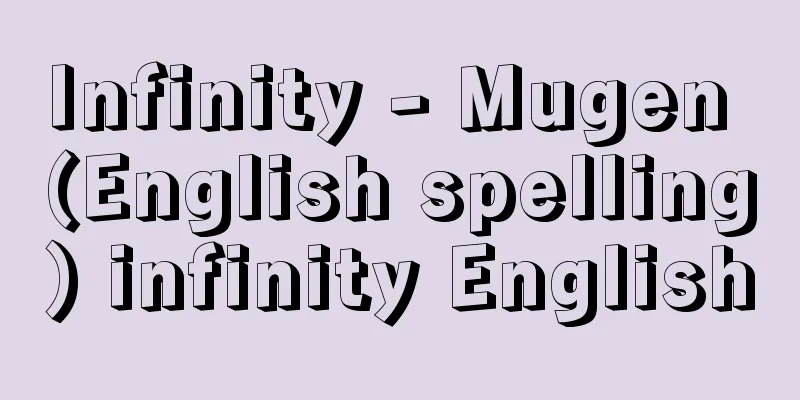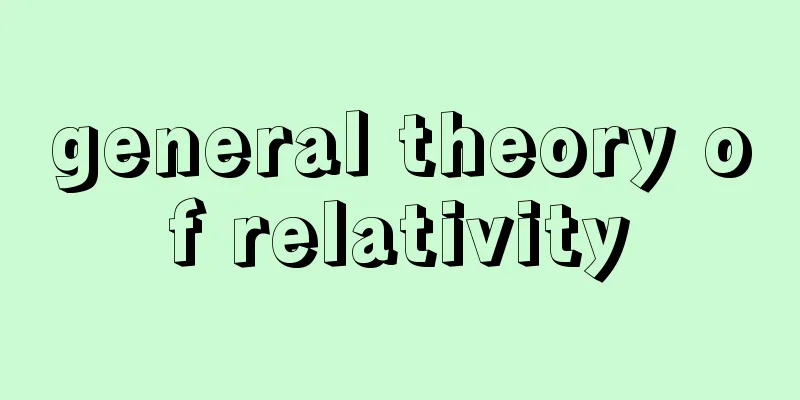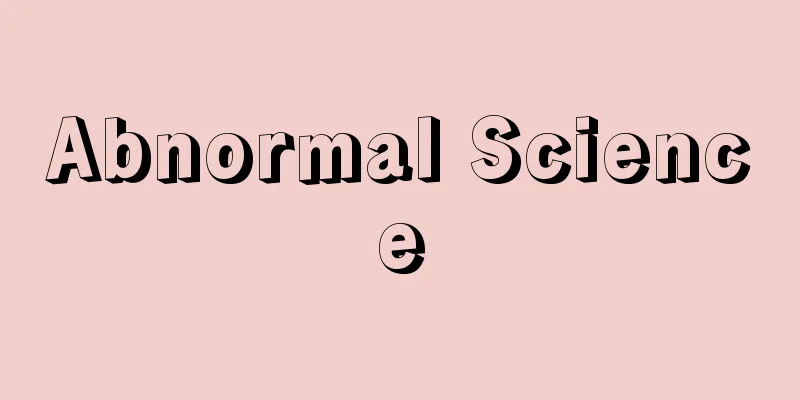Infinity - Mugen (English spelling) infinity English

|
A concept opposed to finite. Literally it means limitless. In Chinese, "wuji", "mujin" and "muhen" convey the meaning of infinity. In the philosophical sense, the Greek word "apeiron" is noteworthy. It is opposed to "peras", or "finite", but there were both attitudes to accept it as a relatively positive concept, from Anaximander's position that it is the source of all creation, to Plato's position that both are contained in all things as the principle of creation, and attitudes to understand it as a negative concept, such as the Pythagoreans' position that it is the opposite concept of numbers, and Aristotle's position that it is "outside" what exists. Incidentally, in Greece, the universe is finite, and the infinity of space is not usually considered. As for time, although it is not necessarily a positive claim, it is open, especially with regard to the future, and can be considered to be virtually infinite. In Christian theology, infinity is not merely the pole of finiteness, but is ascribed to God, and in that sense is embodied. In God, we can know infinity as a true existence. In the Middle Ages, the Greeks inherited the idea of the finiteness of space, and the finiteness of time was actively asserted in eschatological scenes. The idea of the infinity of space began with Nicholas of Cusa, who derived it from the spatiality of God, and was crystallized by Bruno. This position is close to pantheism. Attempts to treat infinity mathematically include the differential and integral calculus of Leibniz and Newton, pioneered by Cavalieri, which also includes the problem of infinitesimals. In philosophical terms, infinity was treated as a theme in the explorations of Kant and Hegel, but it was modern mathematics, especially the field of set theory, that achieved remarkable success in technically formulating infinity. Dedekind defined infinity as follows: A set M is an infinite set if there is a one-to-one correspondence between it and its proper subset M'. For example, the set of natural numbers is an infinite set because it has a one-to-one correspondence with its subset, the set of even numbers. This means that the whole is equal to the part, and in that sense it goes against common sense. Infinity is defined as something that goes against common sense in this way. However, this does not hold true for finite sets. It is also said that a distinction can be made between the degrees of infinity, and its "concentration" can be considered. [Yoichiro Murakami] Source: Shogakukan Encyclopedia Nipponica About Encyclopedia Nipponica Information | Legend |
|
有限に対立する概念。文字どおりには限りのないことを意味する。漢語としては「無極」「無尽」「無辺」のほうが、無限の意味を伝える。哲学的な意味での無限の取扱いで注目されるのは、ギリシアにおける「アペイロン」apeironだろう。これは「ペラス」perasつまり「有限」に対立するが、それがすべての生成の源とするアナクシマンドロスの立場から、両者を生成の原理として万物が内包するものと考えるプラトンの立場まで、比較的積極的な概念として認めようとする態度と、ピタゴラス派のように数の対立概念とする立場や、それを存在するものの「外に」認めようとするアリストテレスの立場など、消極的な概念として理解する態度の双方があった。ちなみに、ギリシアでは宇宙は有限であって、空間の無限性は通常考えられていない。時間については、積極的な主張としてはかならずしも明らかではないものの、とりわけ未来に関しては開かれており、実質上無限であるとみなせる。 キリスト教神学では、無限は単に有限の極ではなく、神に帰せられ、その意味で実体化された。われわれは神において無限を真なる存在として知ることができる。中世では、空間の有限性に関してギリシアを受け継ぎ、時間の有限性に関してはむしろその終末論的な場面で積極的に主張することになった。空間の無限性のアイデアは、神の空間性からそれを導いたニコラウス・クザーヌスに始まり、ブルーノに結晶する。この立場は汎神(はんしん)論に近づく。 無限を数学的に扱う試みとしては、カバリエリを先駆的に、ライプニッツ、ニュートンらの微分・積分法などがあり、そこには無限小の問題も含まれている。哲学的にはカント、ヘーゲルの探求のなかに、無限は主題的に扱われるが、なんといっても、無限の技術的な定式化に目覚ましい成功を収めたのは、近代数学とくに集合論の分野であった。デーデキントは、無限を定義して次のようにいう。ある集合Mと、その真部分集合M'との間に一対一対応がつく場合に、集合Mは無限集合である。たとえば自然数の集合は、その部分集合である偶数の集合と一対一に対応するから、無限集合である。これは全体が部分に等しいことを意味しており、その意味では常識に反する。無限とは、このような常識に反するようなものとして定義されることになる。なお有限集合ではこれが成り立たない。さらに無限の程度にも区別をたてられるとされ、その「濃度」が問題にできるようになっている。 [村上陽一郎] 出典 小学館 日本大百科全書(ニッポニカ)日本大百科全書(ニッポニカ)について 情報 | 凡例 |
Recommend
Protector of Kyoto
This was the title of a shogunate position in the...
First fruits - Hatsuho
In agricultural ceremonies, the first grain harve...
Himmler, H. (English spelling) HimmlerH
In this period, the conservatives who remained in...
Grounds for preventing personal punishment
...There are two types of exemption from punishme...
Field Ordinance - Denryo
(1) One of the sections of the Code. In the "...
Imāmzāda (English spelling)
The term refers to the descendants of Shiite Musli...
Musk gland - Musk
A gland that secretes musk in the musk deer or civ...
Tsumatorisou - Tsumatorisou
A perennial plant of the Primulaceae family (APG ...
Archaeothelae
…The order Araneae is divided into three suborder...
Sioux - Sioux (English spelling)
A general term for three ethnic groups of American...
Seven Days - Shichiyo
〘Noun〙① In ancient Chinese astronomy, the term ref...
Numbers - Numbers
The act of counting is an ability unique to human...
mountain avens
…This plant is an indicator of the cold period of...
Yachiyo [town] - Yachiyo
A former town in Takada County, central Hiroshima ...
Action painting
A trend in painting that became mainstream in Amer...
![Takeno [town] - Takeno](/upload/images/67cc2001caff3.webp)


![Neagari [town] - Neagari](/upload/images/67cc751c991d7.webp)





